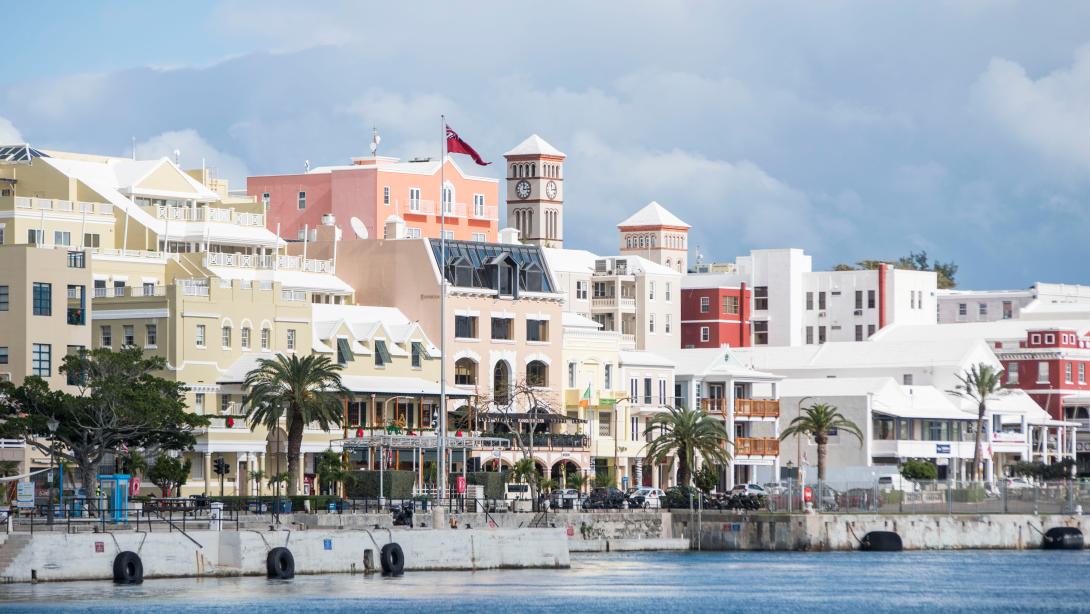
Utilising Bermuda's entities to house assets requires certain economic substance standards to be met. Partner, Louise Charleson, and Director of Client Services, Carol Feathers, provide an overview of these requirements and the impact on Bermuda's thriving captive insurance industry.
A guide to economic substance in Bermuda
What is the purpose of economic substance act?
The purpose of economic substance is to create a level playing-field between taxable jurisdictions (such as most European countries) and nominal or no tax jurisdictions, by ensuring that income streams from certain activities are based on actual local activity to validate the use of these jurisdictions.
Bermuda’s economic substance laws and regulations are enshrined in the Economic Substance Act 2018, the Economic Substance Regulations 2018 (both as amended, together the ES Regime) and related Guidance Notes issued by the Minister of Finance on 18 September 2020.
To comply with the ES Regime, entities carrying on one or more of the defined “relevant activities” need to uphold a substantial economic presence in Bermuda by:
- Being managed and directed in Bermuda;
- Conducting “core income generating activities” (CIGA) in Bermuda;
- Maintaining adequate physical presence in Bermuda;
- Employing adequate and suitably qualified full-time employees in Bermuda; and
- Incurring adequate operating expenditure in Bermuda;
(collectively, ES Requirements).*
What are the benefits of economic substance?
Due to the requirement for international businesses to evidence “adequate” substance in Bermuda, we have seen a net increase in jobs and economic activity. There has been a move from outsourcing administrative and other functions to onshore affiliates, to retaining these activities with the offshore entity. Notably, there has also been the relocation or appointment locally of senior managers and other personnel who in turn benefit the economy through rental of commercial and residential property and creation of opportunities for those who service the needs of these individuals.
What are the challenges of economic substance?
Companies have often relied on conducting regular physical board meetings in Bermuda to demonstrate ‘mind and management’ and the carrying out of CIGA within the jurisdiction. Therefore, one of the biggest challenges over the last 18 months has been the travel restrictions imposed as a result of the Covid-19 pandemic, which has prevented entities from being able to conduct in-person board meetings locally. Physical board meetings are also essential for registered insurance entities (Registrants) to meet their regulatory obligations.
The Bermuda Registrar of Companies (Registrar) issued a Notice on 20 March 2020, acknowledging that business continuity is challenging during this time and as such, where meetings or other similar economic substance compliance measures are not possible due to travel or quarantine restrictions, this may be taken into consideration. However, the Registrar also noted that entities must continue to act in good faith and maintain a careful record of all meetings affected, details of restrictions and steps taken. A widely-held view is that companies should nevertheless ensure that they have personnel who are resident in Bermuda to conduct CIGA, whether this be directors, direct employees or employees of outsourced service providers.
The Bermuda Monetary Authority (BMA) issued a similar Notice on 6 July 2020 (in connection with the Head Office Rules applicable to commercial insurers), confirming that in assessing compliance with the requirement to hold physical board meetings in Bermuda for the period ending 30 September 2020, it would consider all circumstances including Registrants’ inability to hold such meetings due to logistical and health difficulties resulting from Covid-19. However, the BMA also noted that it expects Registrants to continue to conduct their board meetings virtually, by telephone, video conference or other virtual means, where it is not practical to meet physically during this period.
Another challenge is the level of documentation which will need to be maintained in order to complete the ES declarations and held in case of a future on-site inspection by the Registrar.
How can Bermuda work to remain compliant with economic substance legislation?
The Bermuda Registrar of Companies (Registrar) is responsible for implementing, monitoring and enforcing the economic substance regime. The Registrar has the power to issue notices on an entity to comply with the economic substance requirements. If the entity fails to do so, the Registrar can impose civil penalties of up to BD$250,000 in three stages. If, after the civil penalties have been exhausted, an entity continues to be non-compliant, the Registrar may apply to the Court for an order in such terms as it thinks fit, including an order for striking off the entity. Additionally, there is an offence of knowingly making a false economic substance declaration with penalties up to BD$10,000 or imprisonment for two years, or both.
What does economic substance mean for captive insurance?
It is recognised that Registrants may already comply with certain ES Requirements by virtue of their compliance with the Insurance Act 1978, related regulations, rules and codes of conduct, and provisions of the Companies Act 1981 (as amended) relating to corporate governance which apply to them requiring substantial presence in the jurisdiction. The obligations include:
- Maintaining their registered office in Bermuda;
- Maintaining statutory books, records of account, financial statements and registers at their registered office address in Bermuda;
- Having the ability to be served with legal process in Bermuda; and
- Appointing a minimum of one director or officer or a representative resident in Bermuda.
For certain captives which require more intensive administration, such as industry group captives with multiple policyholders or those which write third party business including to clients of the onshore parent, these, by their nature, are more likely to have palpable substance evidenced by dedicated employees and premises. For other captives, such as those with a single policyholder (its onshore parent) which conduct their offshore operations exclusively through a specialist captive management company, a more mindful review of whether its substance requirements are met may need to be conducted to ensure that all key strategic decisions and CIGA are taking place in Bermuda.
To comply with the ES Requirements, some of the steps which could be taken by Registrants include:
- appointing their local service provider to manage all board meetings;
- documenting the reason for the virtual board meeting (rather than in person) in the board minutes;
- the chairman and majority of directors forming the quorum for the meetings being present in the jurisdiction;
- appointing alternate resident directors for non-resident directors to attend board meetings and separate meetings be held at which the non-resident directors are then informed about the discussions and decisions taken at the board meetings held locally; or
- appointing additional resident directors to the board during this period to ensure a majority of resident directors at meetings;
- delegating the responsibilities of non-resident directors to resident directors;
- conducting more important decision-making meetings within the jurisdiction and again carefully documenting these decisions within the meetings’ minutes.
What does the future hold for economic substance in Bermuda?
Currently, Bermuda’s ES Law applies to exempted and local companies, exempted and local limited liability companies, overseas permit companies and partnerships that elect to have separate legal personality that carry on a “relevant activity”. It is anticipated that the legislation will be revised to extend its application to all partnerships not just those with separate legal personality.
Bermuda’s economic substance legislation will continue to develop as needed to ensure ongoing compliance with the scoping paper issued by the European Union’s Code of Conduct Group (Business Taxation) in June 2018. There may also be minor changes relating to ‘levelling up’ between all offshore jurisdictions to reduce any motivation to ‘island-hop’.
How can Ocorian help?
Our team provide a full suite of administration and fiduciary services to the ILS and captive market from our Bermuda, Cayman and BVI offices, ensuring that all structures remain compliant with applicable regulations in each jurisdiction. We add value throughout the life cycle, from incorporation and licensing, to unwinding and voluntary liquidations when the structure ends its natural life - precision and technical expertise has been the hallmark of our service offerings to this important global industry.
If you would like to discuss how we could support your needs, please get in touch with our team.
* Notes:
- CIGA vary according to the relevant activity
- “Adequate” is based on the ordinary dictionary definition and therefore the extent of the economic substance in place can be proportionate to the nature scale and complexity of an entity’s business (for example, some businesses do not require full-time employees or dedicated office space)
- Employees may include roles outsourced to local service providers


